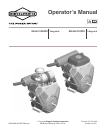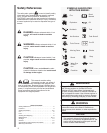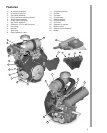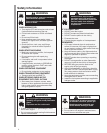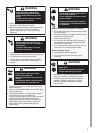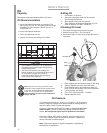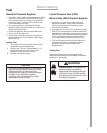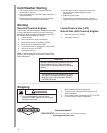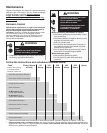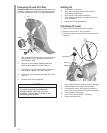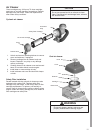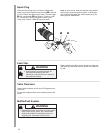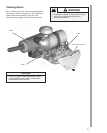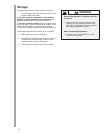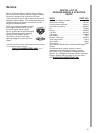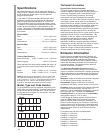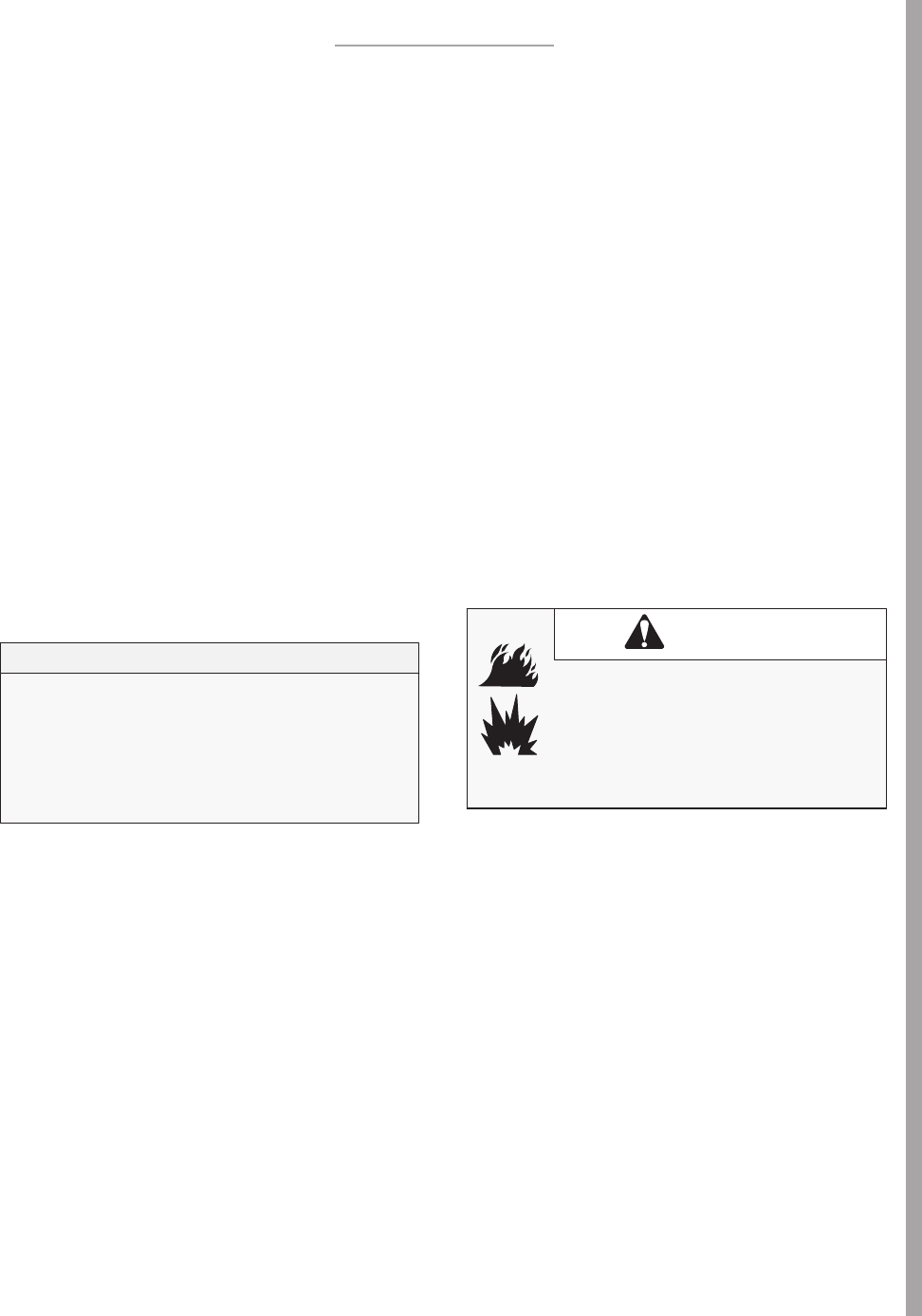
7
Before Starting
Fuel
Gasoline Powered Engines
• Use clean, fresh, regular unleaded gasoline with a
minimum of 85 octane. Fresh fuel prevents gum
from forming in the fuel system or on essential
carburetor parts. Purchase fuel in quantity that
can be used within 30 days.
• For engine protection use Briggs & Stratton
Gasoline Additive available from your Authorized
Briggs & Stratton Dealer.
• Do not use gasoline which contains Methanol.
• Do not mix oil with gasoline.
• This engine is certified to operate on gasoline.
Exhaust Emission Control System: EM (Engine
Modifications).
Adding Fuel
1. Turn engine OFF and let engine cool at least 2
minutes before removing gas cap.
2. Remove cap. Fill tank to approximately 1-1/2
inches below top of neck to allow for fuel
expansion. Be careful not to overfill.
3. Replace cap before starting.
Some fuels, called oxygenated or reformulated
fuels, are fuels blended with alcohols or ethers.
Excessive amounts of these blends can
damage the fuel system or cause performance
problems. If any undesirable operating
symptoms occur, use gasoline with a lower
percentage of alcohol or ether.
CAUTION
Liquid Propane Gas (LPG)
Natural Gas (NG) Powered Engines
• Use clean, dry fuel, free of moisture or any
particulate material. Using fuels outside the
following recommended values may cause
performance problems.
• In engines set to run on LPG, commercial grade
HD5 LPG is recommended. Recommended fuel
composition is fuel with a minimum fuel energy of
2500 BTU’s/ft# with maximum propylene content
of 5% and butane and heavier gas content of
2.5% and minimum propane content of 90%.
• LPG or NG engines are certified to operate on
liquid propane gas or natural gas. Exhaust
Emission Control System: EM (Engine
Modifications).
Adding Fuel
Read the operating instructions supplied by the
equipment manufacturer for information on refueling
natural or LP gas engine.
LPG/NG Engines: The equipment on
which this engine is mounted is
equipped with an automatic safety gas
“fuel lock-off” valve. DO NOT operate
the equipment if the “fuel lock-off” valve
is missing or inoperative.
WARNING



